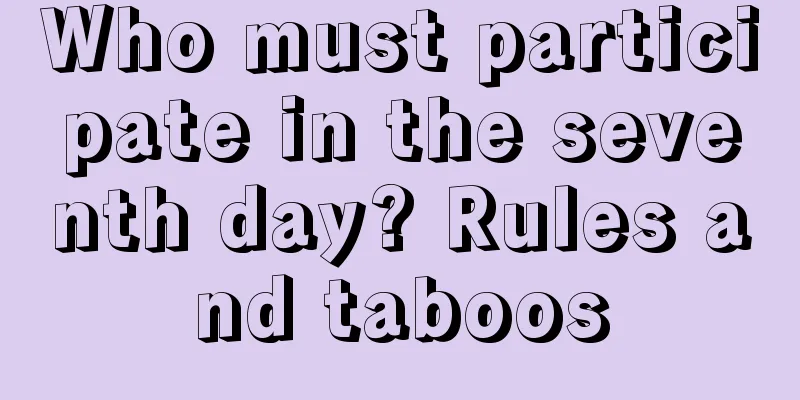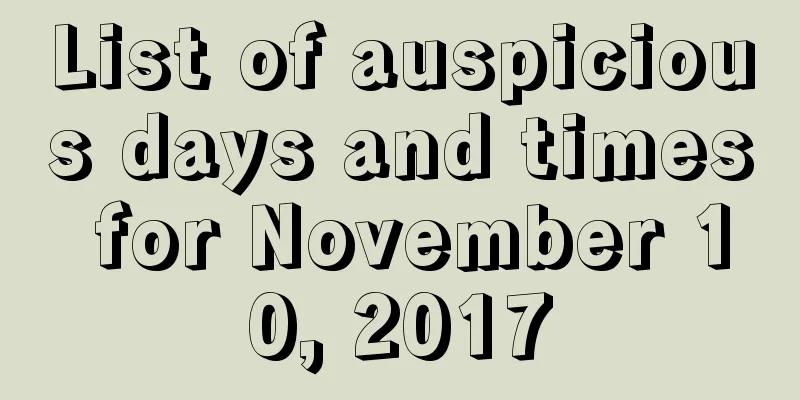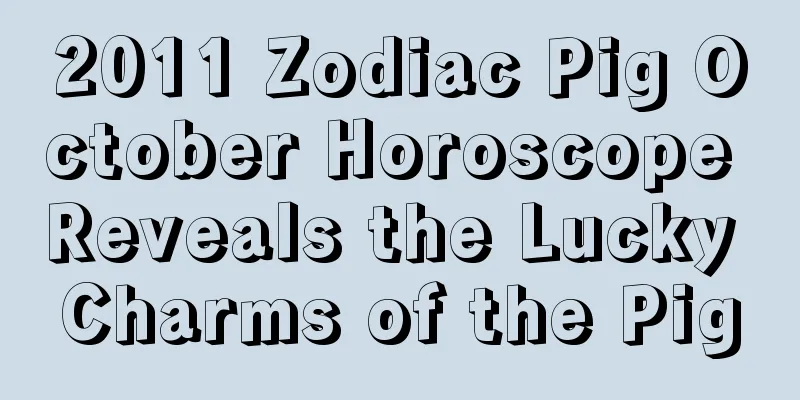Who must participate in the seventh day? Rules and taboos

|
We all know that people cannot be resurrected after death, but in Buddhism, people have souls after death, and the souls can enter the six realms of reincarnation and be reborn as humans. The first seven days is a folk funeral custom. Who must participate in the first seven days? What are the rules and taboos for holding a seventh-day memorial ceremony? Who must attend the first seven days If a relative has passed away in the family, all family members should be at home for the first seven days. Rules and taboos for making seven 1) "The first seven" is generally called "the first seven" or the first seven, which usually starts on the sixth day. According to "Hangzhou Customs and Traditions", the seven must be done on the sixth day, so it is called "knocking on the sixth head". It must be done by monks from the land temple, and the first seven must be knocked. The content includes performing fifteen confessions, hanging merit paintings, and posting notices, but there is no Yimakou ritual, and it ends with just watching the lanterns. |
<<: A good name for a boy named Cao that means luck
>>: Girls' names ending with "Jiao"
Recommend
Aquarius men don't like your performance. They are philanthropic and will give many people the wrong impression.
Some people say that ambiguity is the most beauti...
Test who loves you the most. Who is the one who will accompany you till old age?
No matter how many people you have loved, the one...
Is the fifth day of the first lunar month in 2022 a good date for engagement? Do you need to send wedding candy for engagement?
During the Spring Festival, some friends want to ...
IQ test and answers: How good is your memory?
Some people say that the better a person’s memory...
Sagittarius April 2012 Horoscope: Predictions of love and career
Sagittarius's horoscope for April: Try to do ...
The most philandering zodiac sign men ranking Scorpio men are typical playboys
Men always have various reasons to find partners ...
Girls' names starting with "佳"
A good name not only implies auspiciousness and g...
100-point name for a girl with the surname Fang
Nowadays, many parents have realized that giving ...
The fate of boys born on the Double Ninth Festival. Boys born on this day have excellent fortune.
What is the fate of a boy born on Double Ninth Fe...
Susan Miller's December 2016 Horoscope: Uranus in Gemini comes like lightning
December is going to be a month of explosion in y...
Capricorn's January horoscope for 2013 is revealed in advance: the new year will usher in good luck
In addition to Chinese Feng Shui and numerology, ...
Horoscope: Tang Liqi's daily horoscope 2017.07.07
Destiny is in the hands of the strong, not decide...
The twelve zodiac signs that indicate a breakup: They will never initiate the breakup. They will either go into a cold war or gradually distance themselves from your zodiac sign!
In life, we often see such people. Although they ...
Zhou Gong's Dream Interpretation: Eight Kinds of Auspicious Dreams
I am going to introduce to you eight kinds of aus...
What does the right eye twitching mean at different times? Does the right eye twitching mean good fortune or disaster?
There are many different opinions among the peopl...









